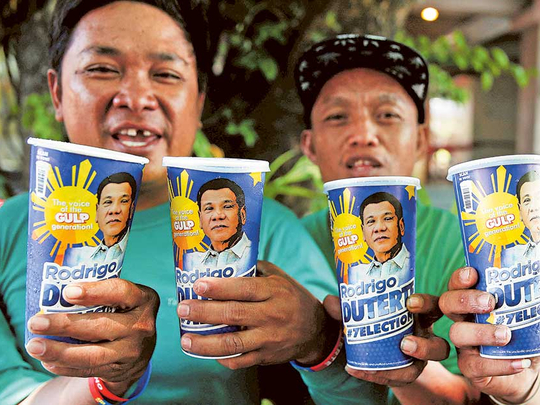
Manila: The armed forces and the national police have been placed on alert ahead of the May 9 presidential elections, Philippine officials say.
Capt. Frank Celeste Sayson, Armed Forces of the Philippines (AFP) Public Affairs Office deputy chief, said the military has placed its forces across the country on alert in conjunction with the Philippine National Police (PNP), to thwart any attempt to mar the conduct of an orderly poll as well as post-election activities.
During elections, both the armed forces and police are deputised by the Commission on Elections to ensure safe and orderly conduct of the vote.
Last Tuesday, the military had activated its National Election Monitoring Centre (NMEC) at its headquarters in Camp Emilio Aguinaldo in suburban Quezon City. Part of the NMEC’s tasks is to keep tabs on election related incidents.
Patronage politics and warlordism is still prevalent in the Philippines and election-related violence is a frequent occurrence prior, during and after the vote.
According to Sayson, the military, police and Comelec have identified 421 elections “hot spots” where poll related violence is expected to take place and a similar number are on the “watchlist.” Most of these hotpots are municipalities and cities in Mindanao.
Political tensions
Some 159 municipalities under the election hot spot classification had a history or have ongoing political tensions as a result of rivalries among politicians. These political personalities also maintain their own private armed groups or hire assassins to eliminate their rivals.
Among the election hot spots, the Autonomous Region in Muslim Mindanao is under close watch due to its history of political violence.
Aside from the Mindanao areas, another hotspot is the Central Luzon region and Metro Manila where a number of killings have taken place in recent days.
In November 23, 2009 the Philippines recorded its worst incident of politics-related violence after a multi-vehicle convoy carrying supporters of a then candidate for governor, Ismael Mangudadatu was flagged down by a group of armed men led by his rival candidate for the gubernatorial post, Andal Ampatuan Jr. The victims were herded to a secluded area in Datu Salman town in Maguindanao and were lined up and brutally executed by Ampatuan Jr’s men.
When the smoke from the gunfire cleared, the bodies of 58 people lay on the ground. Among the victims were three dozen members of the press, a handful of lawyers as well as other civilians including those who by chance were in the area when Ampatuan and his men set up the roadblock.
Some of the perpetrators were arrested and are now undergoing trial but a number implicated in the incident were even able to run for the succeeding elections.












